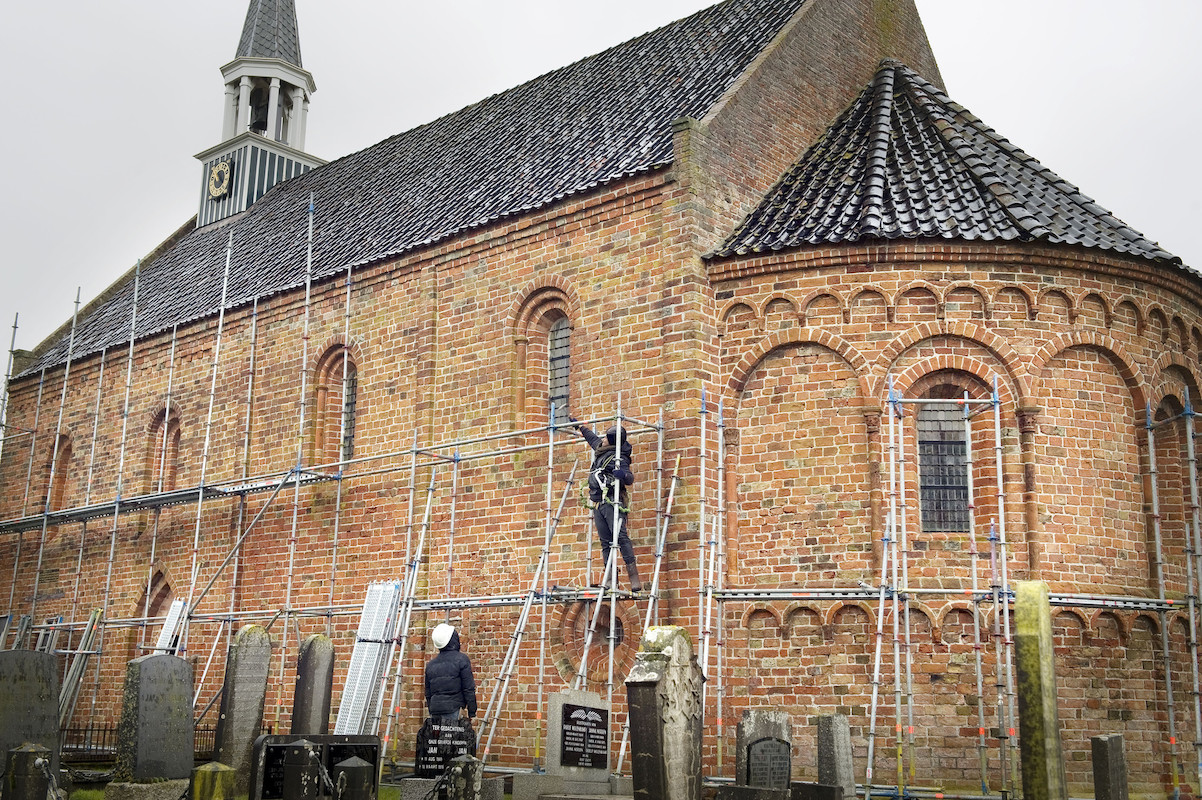Professionals dealing with consequences of earthquakes discuss the complex system
Many organizations are involved in solving the problems caused by earthquakes in the province of Groningen. This system is complex and there are many obstacles involved. This is the opinion of professionals who hold authoritative positions in this system. They experience their work as demanding and, sometimes, even as ‘maddening’ . These are the conclusions reached by Prof. Tom Postmes and Dr Katherine Stroebe from the University of Groningen, on the basis of a new study by Gronings Perspectief .
Thirty-three professionals were interviewed as part of the study, which was carried out on behalf of National Coordinator Groningen (NCG). The researchers interviewed professionals working for government ministries, the Province of Groningen, municipalities, Instituut Mijnbouwschade Groningen (the Institute for Mining Damage in Groningen), NCG and Staatstoezicht op de Mijnen (the Government Mine Watchdog). The professionals were asked about what they thought of the functionality of the system through which the earthquake problems are addressed.
Involved and frustrated professionals
The professionals claimed to put their heart and soul into doing right by residents. They have a lot of mutual respect for one another and predominantly see their collaboration as positive. But they also experience their work as demanding and, sometimes, even ‘maddening’. Postmes: ‘For most of the professionals, this problem gets under their skin. They work extremely hard but only progress in very small steps. They aren’t able to meet agreements and can’t explain this to residents, to everyone’s great frustration.’

System, implementation and residents
Professionals sketch an ‘unbelievably complex’ task with ‘immense problems’. They signal a multitude of obstacles. They describe how the different organizations involved think differently about the task at hand. Professionals from different organizations see conflicts of interest, uncertainty about responsibilities and a lack of leadership . A large variety of expertise is brought together but the various components clash and often ignore the needs of residents and the complex situations that arise in practice. Professionals involved in implementation say that bureaucratic oversight and continuously changing rules are large obstacles. Many of them find the system too complex and too large. In their eyes, residents are often left behind.
Many questions, one recommendation
On the basis of their observations, the researchers have compiled 13 questions about the system. Examples include: would the system work better with fewer organizations and more guidance? Are legal due diligence, a strict financial framework and fast implementation compatible? Could the insights of residents and those from implementation play a more central role in the policy and approach? Postmes: ‘Our report on the reinforcement and rebuilding of houses of 17 December is about the implementation of this strengthening operation. The report looks at the system around this operation. Most of the professionals who we spoke not only signalled large problems but also that the fields of expertise and organizations involved mutually disagree on solutions. Because they need to work together, we have just one recommendation: to examine the system together.’
Gronings Perspectief
Gronings Perspectief is a collaboration between the UG, the Municipal Health Service (GGD) Groningen and the Groningen Social and Cultural Planning Office. The researchers are assisted by a supervisory committee comprising the relevant municipalities, the Municipal Health Service, special interests group Groninger Bodembeweging, cross-sectoral collective of social organizations Groninger Gasberaad, the National Coordinator Groningen, the Province of Groningen, the Veiligheidsregio (safety region) Groningen and the Association of Groningen Villages, as well as scientific experts.
Research team
The team led by Dr Stroebe and Prof. Postmes has been investigating the health, safety and future prospects of residents of all municipalities in the gas production area, on behalf of the National Coordinator Groningen. A panel of Groningers periodically completes a questionnaire on safety, health and future prospects. All of the findings of Gronings Perspectief are published on the website groningsperspectief.nl
| Last modified: | 18 February 2021 3.12 p.m. |
More news
-
24 March 2025
UG 28th in World's Most International Universities 2025 rankings
The University of Groningen has been ranked 28th in the World's Most International Universities 2025 by Times Higher Education. With this, the UG leaves behind institutions such as MIT and Harvard. The 28th place marks an increase of five places: in...
-
05 March 2025
Women in Science
The UG celebrates International Women’s Day with a special photo series: Women in Science.
-
16 December 2024
Jouke de Vries: ‘The University will have to be flexible’
2024 was a festive year for the University of Groningen. In this podcast, Jouke de Vries, the chair of the Executive Board, looks back.
